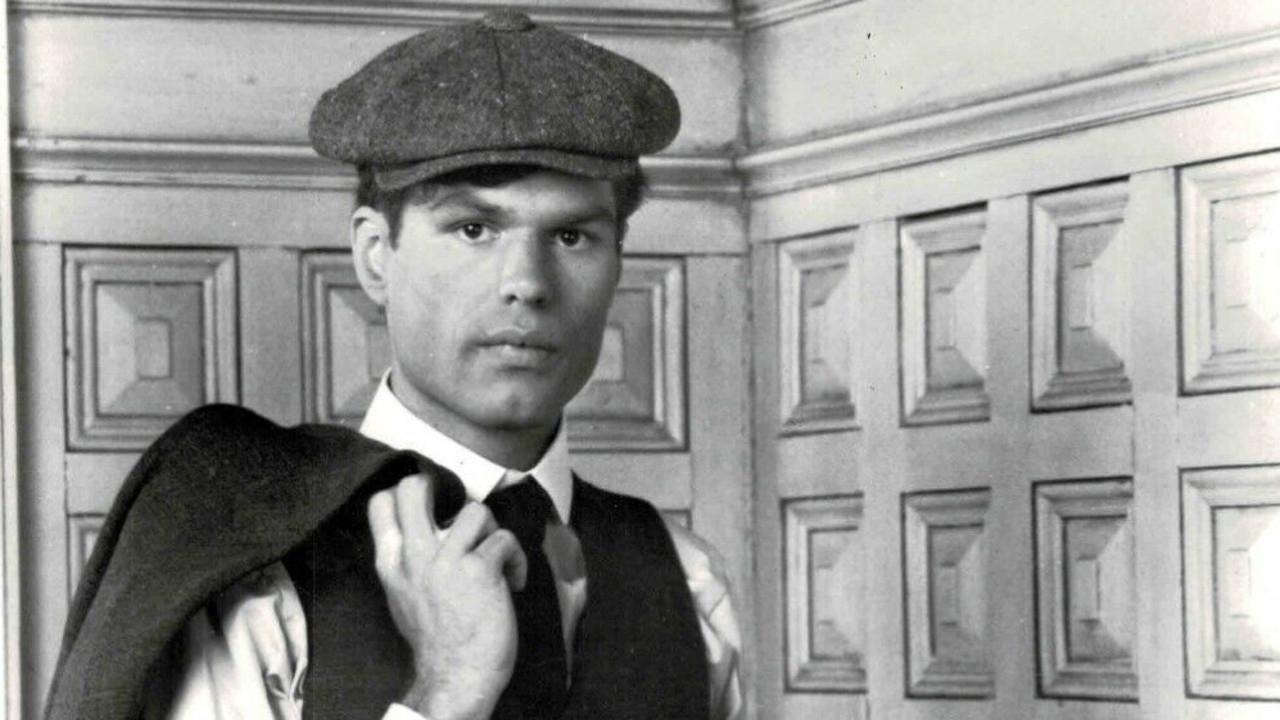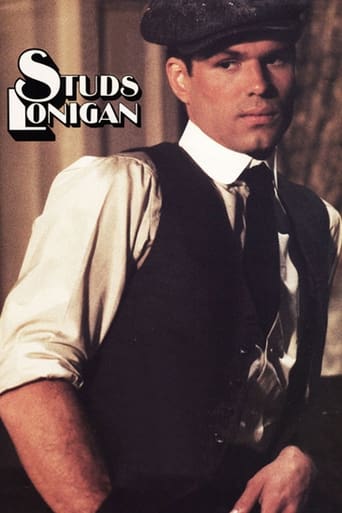



Am I Missing Something?
A film with more than the usual spoiler issues. Talking about it in any detail feels akin to handing you a gift-wrapped present and saying, "I hope you like it -- It's a thriller about a diabolical secret experiment."
View MoreA film of deceptively outspoken contemporary relevance, this is cinema at its most alert, alarming and alive.
View MoreThe film's masterful storytelling did its job. The message was clear. No need to overdo.
View MoreStuds Lonigan is a great miniseries! All star cast with Charles Durning, Colleen Dewhurst, Harry Hamiln, etc. I love this and looked for it for almost 40 years. Until May 2018 - when I FOUND IT available at DVD Planet Store. Not cheap, but WORTH IT!! Glad to finally have it in my movie collecttion!
View MoreIn the 1930s, James T. Farrell wrote the trilogy "Studs Lonigan." A film adaptation was made in 1960, but because this movie is only 95 minutes long, it is a much abbreviated version of the story as told in the book. The 1979 TV mini-series, with a length of 360 minutes, stood a much better chance of faithfully representing the book, but it failed to do so.It would be tedious to enumerate all the differences between the book and the two adaptations, but there is one difference that stands out from all the rest, a change in the very essence of the central character. Both the movie and the mini-series make Studs out to be a much better person than he was in the book, more likable and sympathetic. And this is too bad, because it is the only novel in which the central character is a bully, and it would have been nice to have this defining trait preserved in either adaptation, which could easily have been done, even in the 95-minute movie. This is not to say that "Studs Lonigan" is the only novel featuring a bully, but typically, it is the character who is bullied that is central, not the bully himself. In Farrell's trilogy, we are always inside the head of Studs. We get to see what it is like to be a bully, how he thinks and feels.A lot of people might not even think of this as a novel about a bully. Certainly, the title character never thinks of himself in that way. But then, you will not hear many people say, "I am a bully." Oh, sure, one might admit to having been a bully on one or two occasions, for which one is ashamed. But we seldom encounter anyone who will characterize himself as a bully, as if it were his essence. And yet, we have scarcely reached the third page, when Studs refers to "goofy Danny O'Neill, the dippy punk who couldn't be hurt or made cry, no matter how hard he was socked ." A minor character, it was the bullied Danny O'Neill with whom Farrell identified.The day never passes that Studs does not think about beating someone up, although it is something he thinks about more than he actually does. Studs does have his moment of greatness when he beats up Weary Reilley, who is an even worse bully than Studs. But throughout the novel, Studs finds plenty of glory in pushing others around who are smaller, weaker, or more timid than he is, especially when he and his pals outnumber their hapless victims.One of my favorite parts of the novel occurs when a priest gives a passionate sermon attended by Studs and his gang. We hear Father Shannon warn against the evils of smoking, drinking, and necking. And for a brief moment, we allow ourselves to hope that he will admonish the young toughs about fighting. We don't expect him to say they should turn the other cheek. That would be asking too much. But perhaps the priest will at least urge them not to be so quick to throw the first punch, especially if the boy being punched is weaker and smaller. It is not to be. In fact, Father Shannon tells them that if they catch some college atheist making a play for their sister, they should beat him up. Later, Studs and his gang talk about the sermon, and it is clear that they are glad they have sisters, because beating someone up always feels better when you can be righteous about it.At the end of the novel, Studs regrets the fact that he never kissed Lucy when they sat in that tree, that he dropped out of school instead of continuing his education, that he didn't save his money, and that he ruined his health with all the smoking, drinking, and carousing around. But he never regrets being a bully.
View MoreThis mini-series about the decline and fall of a tough, working class lad named Studs Lonigan is better than James T. Farrell's original novel. While Farrell was undoubtedly sincere in his attempt to expose the bigotry and hypocrisy of the rising Irish immigrant class of 1920's Chicago, his monotonous prose and bleak moral outlook prevented any of his characters from engaging the reader's sympathy. The miniseries preserves the tragic ending, but softens and humanizes Studs Lonigan's family and friends to a very considerable degree.In the book version, Danny O'Neill, the sensitive lad who stands in for Farrell himself, is merely a casual acquaintance. Studs does not like him or respect him. In the mini-series, the two are close friends, and Danny cares for Studs' girlfriend after he is gone and provides a moving elegy to his fate. Similarly, the only Jewish kid in the gang, Davey Cohen, is treated badly by Studs in the novel, while in the mini-series the two remain loyal comrades to the very end. This indeed heightens the tragedy immeasurably, as Studs dies of pneumonia just after Davey has promised to hire him at his new factory. Watching the dying Studs sink slowly into the gutter, still holding aloft the dollar bill Davey has loaned him like a battle flag, is one of the most moving moments in the mini-series. In the book Studs' collapse is less poignant, since no one was trying to help him and he had no reason to keep on fighting.In the book, Farrell tends to insist that everyone must be ground down and degraded by "the system," without any room for charm or luck, much less hard work and initiative. In the mini-series Studs falls, but many of his old friends succeed. Even Lucy Scanlan, the dream girl Studs worships from afar, proves to be surprisingly warm and engaging in the film version. At the end, when Studs is dying in the gutter, we see a brief glimpse of Lucy -- by now the pampered and well-protected wife of a very wealthy Irish attorney -- pausing to give a little money to a broken down street bum who looks a lot like Studs. Thus the end message is not so much that life is hateful and everyone is doomed, but that life goes on and kindness will triumph in the end.All in all a fine NBC mini-series, from the days when network television meant something more than vulgar spectacles and reality TV.
View MoreIf you have never seen this mini-series, you have never watched "Studs Lonigan". The 1960 film was a hack job. If you've read the book, you'll find the story is still altered. But Harry Hamlin does well as Studs. It's engrossing to watch his life unfold and the end is classic. This mini-series caused me to pick up and read the trilogy. I only wish this were available on VHS. If you know how to find a copy, let me know. thanks.
View More